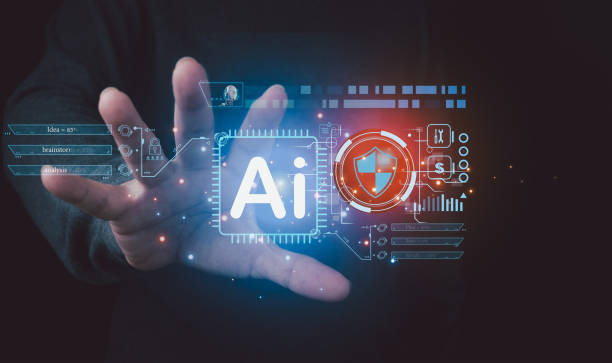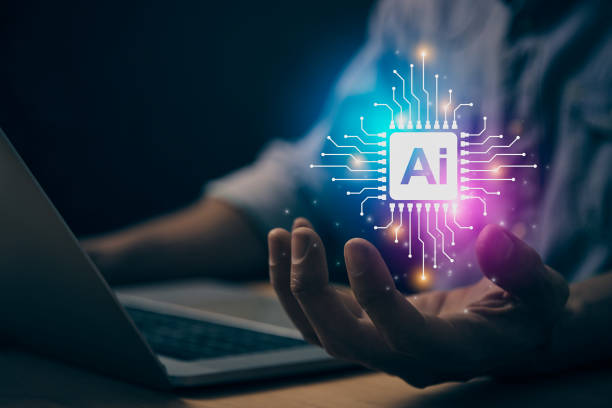What is Artificial Intelligence and How is it Transforming Businesses?
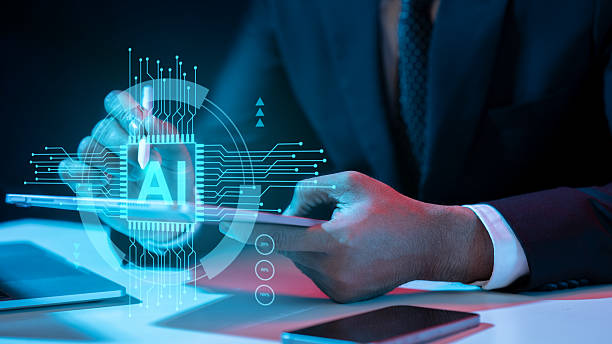
Artificial intelligence (#AI) refers to the ability of a computer system to mimic human cognitive functions such as learning, problem-solving, and decision-making.
This technology is rapidly advancing and has a profound impact on various industries, including healthcare, finance, manufacturing, and transportation.
#Future_jobs Artificial intelligence can transform many jobs by automating repetitive tasks, increasing productivity, and creating new job opportunities.
Understanding these transformations is essential for preparing for the #future_jobs.
For example, artificial intelligence systems can be used for early disease detection in the medical field, risk management in finance, and supply chain optimization in the manufacturing industry.
These applications not only increase efficiency but also create the need for new skills.
Does your company’s website perform as your brand deserves? In today’s competitive world, your website is your most important online tool. Rasaweb, a specialist in professional corporate website design, helps you to:
✅ Gain credibility and customer trust
✅ Convert website visitors into customers
⚡ Get a free consultation!
New Job Opportunities Arising from Artificial Intelligence
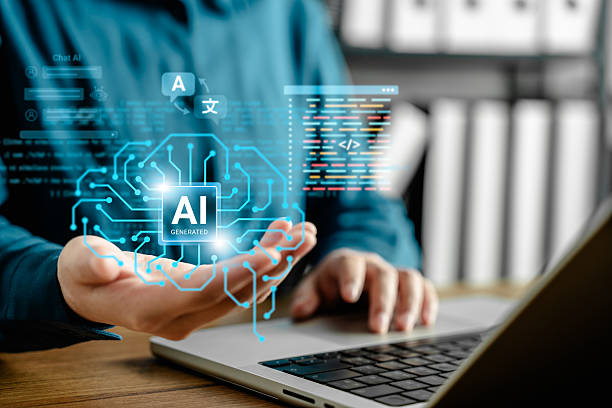
With the expansion of artificial intelligence applications, new job opportunities are being created in various fields.
Some of the most important of these opportunities include data scientist, artificial intelligence engineer, artificial intelligence analyst, artificial intelligence ethics specialist, and process automation specialist.
Data scientists are responsible for collecting, analyzing, and interpreting data to train artificial intelligence models.
Artificial intelligence engineers develop and deploy these models.
Artificial intelligence analysts evaluate the performance of models and provide solutions for their improvement.
Artificial intelligence ethics specialists examine the ethical aspects of using artificial intelligence and provide solutions for ensuring the responsible use of this technology.
Process automation specialists automate business processes using artificial intelligence.
To enter these jobs, it is essential to have knowledge and skills in areas such as computer science, statistics, mathematics, and programming.
Understanding the future of artificial intelligence jobs helps you acquire the necessary skills and prepare for these opportunities.
Jobs at Risk and How to Prepare for Changes
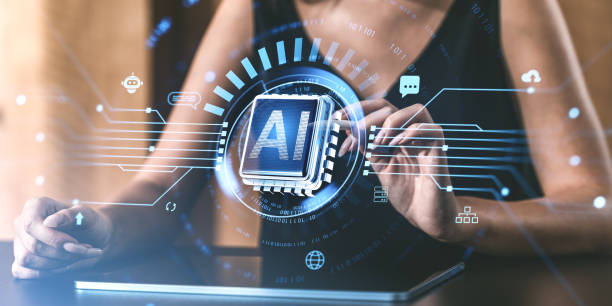
Although artificial intelligence creates new job opportunities, it also puts some jobs at risk.
Jobs that involve repetitive and routine tasks are more at risk of automation.
For example, telephone operators, accountants, and assembly line workers may face replacement by artificial intelligence systems.
To prepare for these changes, individuals should learn new skills that cannot be replaced by artificial intelligence.
These skills include critical thinking, complex problem-solving, creativity, emotional intelligence, and communication skills.
Also, individuals should be prepared to continuously update their skills throughout their professional lives.
Understanding the future of artificial intelligence jobs and identifying jobs at risk helps you prepare for potential changes.
| Jobs at Risk | Reason |
|---|---|
| Telephone Operator | Automation by chatbots and automated response systems |
| Accountant | Automation by intelligent accounting software |
| Assembly Line Worker | Automation by robots and intelligent production systems |
The Role of Education in Preparing the Workforce for the Future of Artificial Intelligence
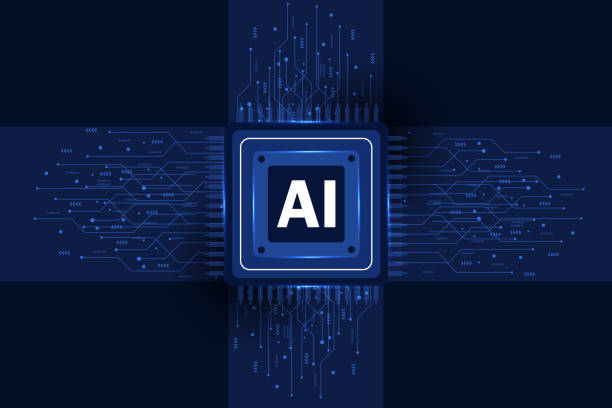
Education plays a vital role in preparing the workforce for the #future_jobs of artificial intelligence.
Education systems must equip students with the skills needed to succeed in the world of artificial intelligence.
These skills include computer science, statistics, mathematics, programming, critical thinking, complex problem-solving, creativity, emotional intelligence, and communication skills.
In addition, education systems should provide opportunities for students to become familiar with artificial intelligence technologies and gain practical experience.
Internship programs and research projects can be helpful in this area.
Understanding the future of artificial intelligence jobs should be included in the curriculum so that students are aware of the opportunities and challenges ahead.
Did you know that 94% of users’ first impressions of a business are related to its website design? With professional corporate website design by **Rasaweb**, turn this initial impression into an opportunity for growth.
✅ Attract more customers and increase sales
✅ Create credibility and trust in the eyes of the audience⚡ Get a free website design consultation!
Key Skills Needed in the Age of Artificial Intelligence
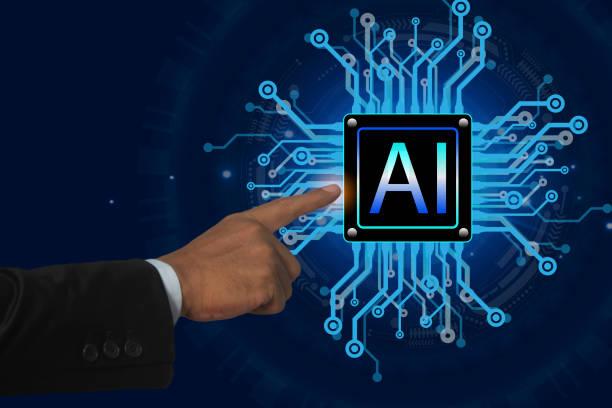
In the age of artificial intelligence, certain skills are of particular importance.
These skills include: 1.
Critical thinking: The ability to analyze information and evaluate arguments.
2.
Complex problem-solving: The ability to identify and solve complex problems using innovative solutions.
3.
Creativity: The ability to generate new and innovative ideas.
4.
Emotional intelligence: The ability to understand and manage one’s own emotions and those of others.
5.
Communication skills: The ability to communicate effectively with others, both verbally and in writing.
6.
Continuous learning: The ability to learn new skills and update one’s knowledge.
To succeed in the #future_jobs of artificial intelligence, individuals must continuously develop these skills.
Participating in training courses, conferences, and workshops can be helpful in this area.
Ethical Challenges of Artificial Intelligence and Social Responsibility
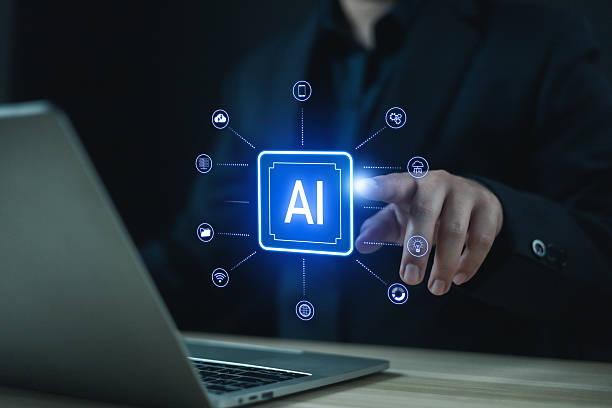
Artificial intelligence also brings significant ethical challenges.
Some of these challenges include privacy, discrimination, accountability, and transparency.
The use of artificial intelligence can lead to the collection and use of personal data, which can violate individuals’ privacy.
Also, artificial intelligence systems may inadvertently be discriminatory and lead to unfair decisions.
Determining accountability in the event of an error by artificial intelligence systems is also a significant challenge.
To ensure the responsible use of artificial intelligence, laws and regulations must be established that consider these ethical challenges.
Understanding the future of artificial intelligence jobs requires attention to ethical aspects and social responsibility.
Industries Most Affected by Artificial Intelligence
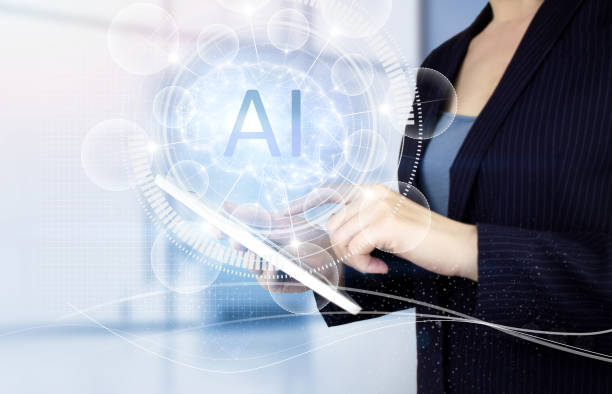
Some industries are more affected by artificial intelligence than others.
These industries include healthcare, finance, manufacturing, transportation, retail, and customer service.
In the healthcare sector, artificial intelligence can be used for early disease detection, the development of new drugs, and the provision of personalized care.
In finance, artificial intelligence can be used for risk management, fraud detection, and the provision of personalized financial services.
In the manufacturing industry, artificial intelligence can be used to optimize production processes, improve quality, and reduce costs.
In transportation, artificial intelligence can be used to develop self-driving cars, optimize routes, and reduce traffic.
In retail, artificial intelligence can be used to provide personalized shopping experiences, predict demand, and optimize inventory.
In customer service, artificial intelligence can be used to provide 24/7 support, answer questions, and solve customer problems.
| Industry | Application of Artificial Intelligence |
|---|---|
| Healthcare | Early disease detection, drug development |
| Finance | Risk management, fraud detection |
| Manufacturing | Optimization of production processes, quality improvement |
| Transportation | Self-driving cars, route optimization |
Impact of Artificial Intelligence on Management and Leadership Jobs
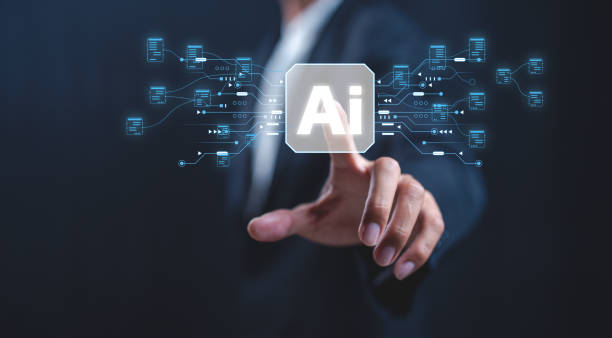
Artificial intelligence affects not only routine jobs but also management and leadership jobs.
Artificial intelligence systems can help managers make better decisions, manage resources, and improve team performance.
For example, artificial intelligence systems can collect and analyze data on employee performance and help managers identify employee strengths and weaknesses.
Also, artificial intelligence systems can help managers plan and allocate resources.
However, it is important for managers and leaders to adapt their skills to work with artificial intelligence systems.
They must be able to interpret the data generated by these systems, make informed decisions, and lead their teams effectively.
Understanding the future of artificial intelligence jobs is essential for managers and leaders.
Did you know that customers’ first impression of your company is your website? Multiply the credibility of your business with a powerful corporate website from Rasaweb!
✅ Exclusive and eye-catching design tailored to your brand
✅ Improved user experience and increased customer attraction
⚡ Get a free consultation!
The Role of Government and Policymaking in Facing Artificial Intelligence Developments
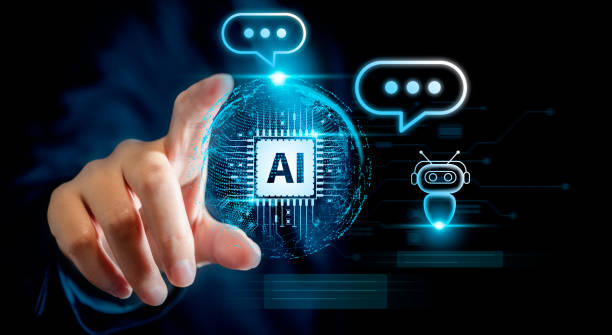
Governments and policymakers play an important role in addressing the changes resulting from artificial intelligence.
They must develop policies that support the responsible development and use of artificial intelligence, protect the workforce from the negative effects of artificial intelligence, and provide new educational and employment opportunities for individuals.
These policies can include investing in education, providing skills training, supporting entrepreneurship, creating social safety nets, and enacting laws and regulations regarding the use of artificial intelligence.
Governments should also cooperate with other countries and international organizations to establish global standards for the use of artificial intelligence.
Understanding the future of artificial intelligence jobs and developing appropriate policies to address it is essential for governments.
The Future of Artificial Intelligence Jobs
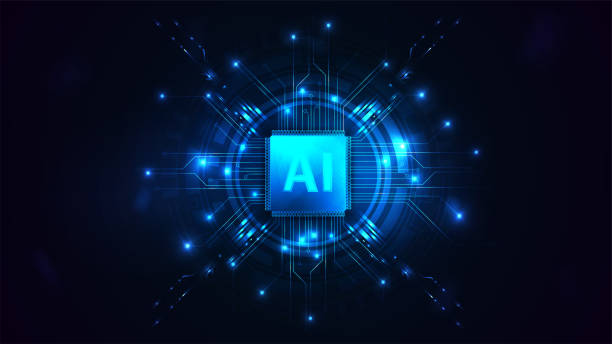
In short, artificial intelligence creates significant opportunities and challenges for the #future_jobs.
To succeed in this #future_jobs, individuals must learn new skills, adapt to changes, and continuously update their knowledge.
Governments and policymakers must also develop policies that support the responsible development and use of artificial intelligence and protect the workforce from the negative effects of artificial intelligence.
With proper preparation, we can benefit from the advantages of artificial intelligence and avoid its negative effects.
The #future_jobs of artificial intelligence is rapidly evolving, and continuous learning and flexibility are essential to succeed in this #future_jobs.
The #future_jobs of artificial intelligence creates new job opportunities, but also puts some jobs at risk.
The #future_jobs of artificial intelligence requires attention to ethical aspects and social responsibility.
To prepare for the #future_jobs of artificial intelligence, you need to develop critical thinking skills, complex problem-solving, creativity, emotional intelligence, and communication skills.
The #future_jobs of artificial intelligence requires investment in education and the provision of skills training.
Understanding the #future_jobs of artificial intelligence is essential for managers and leaders.
The #future_jobs of artificial intelligence is influenced by government policies and laws.
In general, the #future_jobs of artificial intelligence is bright and promising, but requires effort and preparation.
Frequently Asked Questions
| Question | Answer |
|---|---|
| How will artificial intelligence affect the future labor market? | Artificial intelligence automates repetitive jobs, but at the same time, it will create new and more complex jobs in areas such as development, maintenance, and training of artificial intelligence systems. |
| Which jobs are most at risk of being replaced by artificial intelligence? | Jobs that involve repetitive, rule-based tasks with low requirements for creativity or emotional intelligence, such as some manufacturing, data entry, and simple customer service jobs, are more at risk. |
| What skills are essential for success in the future job market with the presence of artificial intelligence? | Skills such as critical thinking, complex problem-solving, creativity, emotional intelligence, data literacy, the ability to work with artificial intelligence, and lifelong learning are of high importance. |
| Will artificial intelligence cause widespread unemployment? | Some jobs will disappear, but history has shown that new technologies, instead of widespread unemployment, reshape the labor market and create new jobs. The need for adaptation and retraining is important. |
| What new job opportunities are emerging with the rise of artificial intelligence? | Jobs such as machine learning engineer, data scientist, artificial intelligence ethicist, human-AI interaction designer, and digital transformation consultant are among the new opportunities. |
| What is the role of education in preparing for the future job market with artificial intelligence? | Education should focus on developing soft skills, computational thinking, digital literacy, and the ability to learn continuously to prepare individuals for future changes. |
| How can I prepare myself for the labor market changes caused by artificial intelligence? | You can prepare yourself by learning new skills related to artificial intelligence and data, strengthening soft skills, developing critical thinking and creativity, and developing a habit of lifelong learning. |
| Will artificial intelligence ethics become an important field of employment? | Yes, given the growing concerns about biases, privacy, and automated decision-making of artificial intelligence, the role of artificial intelligence ethics experts will be crucial to ensure its responsible development. |
| What is the importance of human and artificial intelligence collaboration in the future job market? | Collaboration between humans and artificial intelligence, instead of competition, shapes the future of the labor market. Artificial intelligence can be a tool to increase productivity and focus humans on more complex and creative tasks. |
| Which industries will be most affected by artificial intelligence? | Almost all industries will be affected, but areas such as healthcare, finance, transportation, manufacturing, education, and customer service are pioneers in adoption and transformation by artificial intelligence. |
And other advertising services of Rasa Web Advertising Agency in the field of advertising
Intelligent digital advertising: A combination of creativity and technology for user engagement through marketing automation.
Intelligent UI/UX: A creative platform to improve SEO rankings by customizing the user experience.
Intelligent UI/UX: A combination of creativity and technology to increase click-through rates through precise audience targeting.
Intelligent direct marketing: An effective tool for managing campaigns with attractive user interface design.
Intelligent sales automation: An effective tool for online growth with attractive user interface design.
And more than hundreds of other services in the field of internet advertising, advertising consulting and organizational solutions
Internet Advertising | Advertising Strategy | Reportage Advertising
Resources
The Future of Artificial Intelligence Jobs in Iran and the World
,The Future of Artificial Intelligence in Management Jobs
,What Jobs Does Artificial Intelligence Create?
,What is Artificial Intelligence
? Is your business ready to leap into the digital future? Rasaweb Afarin Digital Marketing Agency paves the way for your success by providing comprehensive services including modern user interface website design, SEO, and social media management. Contact us today and transform the future of your brand.
📍 Tehran, Mirdamad Street, next to the Central Bank, South Kazerun Alley, Ramin Alley, No. 6


